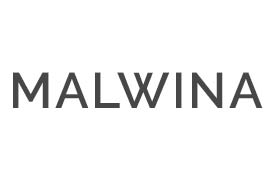BOOK RECOMMENDATIONS
On this page I list my favorite books around psychology and living a good life, sorted by topics (from goal achievement to spirituality).

GOAL ACHIEVEMENT
Willpower Doesn’t Work
by Benjamin Hardy
 If there’s one thing that studying psychology has taught me, it’s that human behavior is much more dependent on the environment than we like to think. Particularly in western individualistic culture, most people like to believe that they are „masters of their fate“ and that they can do anything they like as long as they really want it – as long as willpower is strong enough. However, willpower is a limited resource. If one is serious about a particular goal, it’s important to build external structures that will support that goal, rather than relying only on internal, psychological structures.
If there’s one thing that studying psychology has taught me, it’s that human behavior is much more dependent on the environment than we like to think. Particularly in western individualistic culture, most people like to believe that they are „masters of their fate“ and that they can do anything they like as long as they really want it – as long as willpower is strong enough. However, willpower is a limited resource. If one is serious about a particular goal, it’s important to build external structures that will support that goal, rather than relying only on internal, psychological structures.
In this book, Benjamin Hardy provides not only an excellent explanation of that mechanism but also practical alternatives to relying on willpower alone. Nice side effect: reduced guilt around procrastination and “not being strong enough”.
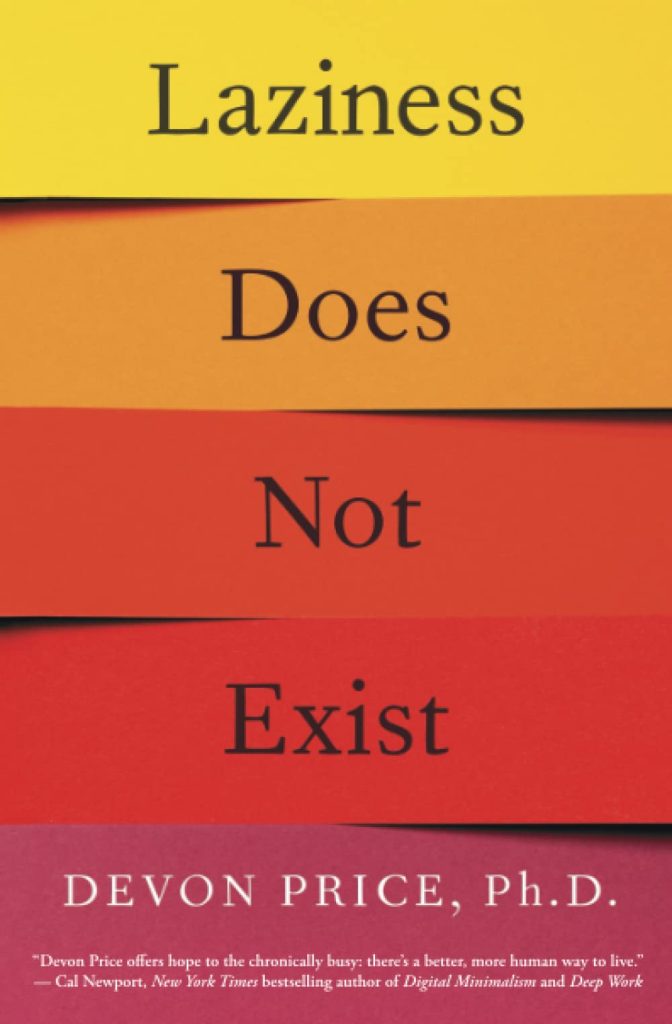
Laziness Does Not Exist
by Devon Price
The subtitle of says it all: „A Defense of the Exhausted, Exploited, and Overworked“. This book is for you if you live with a constant sense of guilt for not doing enough, if you judge yourself (or others!) as lazy, and if you tend to beat yourself up for not being productive enough. Price combines research findings with pop culture, personal stories, intersectionality and a healthy critique of the capitalist system we live in.
(Ein ausführliche deutsche Zusammenfassung des Buches findest du hier!)
Getting Things Done
by David Allen
 An oldie but goodie. I highly recommend this classic task management system if…
An oldie but goodie. I highly recommend this classic task management system if…
- you regularly find yourself in the dark land of „too much to do, too little time“,
- you’d generally like to become more organized and on top of things,
- you want structure but find calendar-based time management systems too restrictive,
- you’re feeling overwhelmed by all the things you’d like to do (or need to do) and get anxiety even just thinking about it all.
Applying GTD has fundamentally changed the way I think about tasks and projects, training me to (a) start with a very clear picture of the end result, (b) always define a very specific, doable first step and (c) not get too caught up with the rest. I use this approach not only in my personal life but also in my consulting work and find it very useful for getting out of overwhelm and into inspired action.
Wishcraft: How to Get What you Really Want
& I Could Do Anything if I Only Knew What It Was
by Barbara Sher
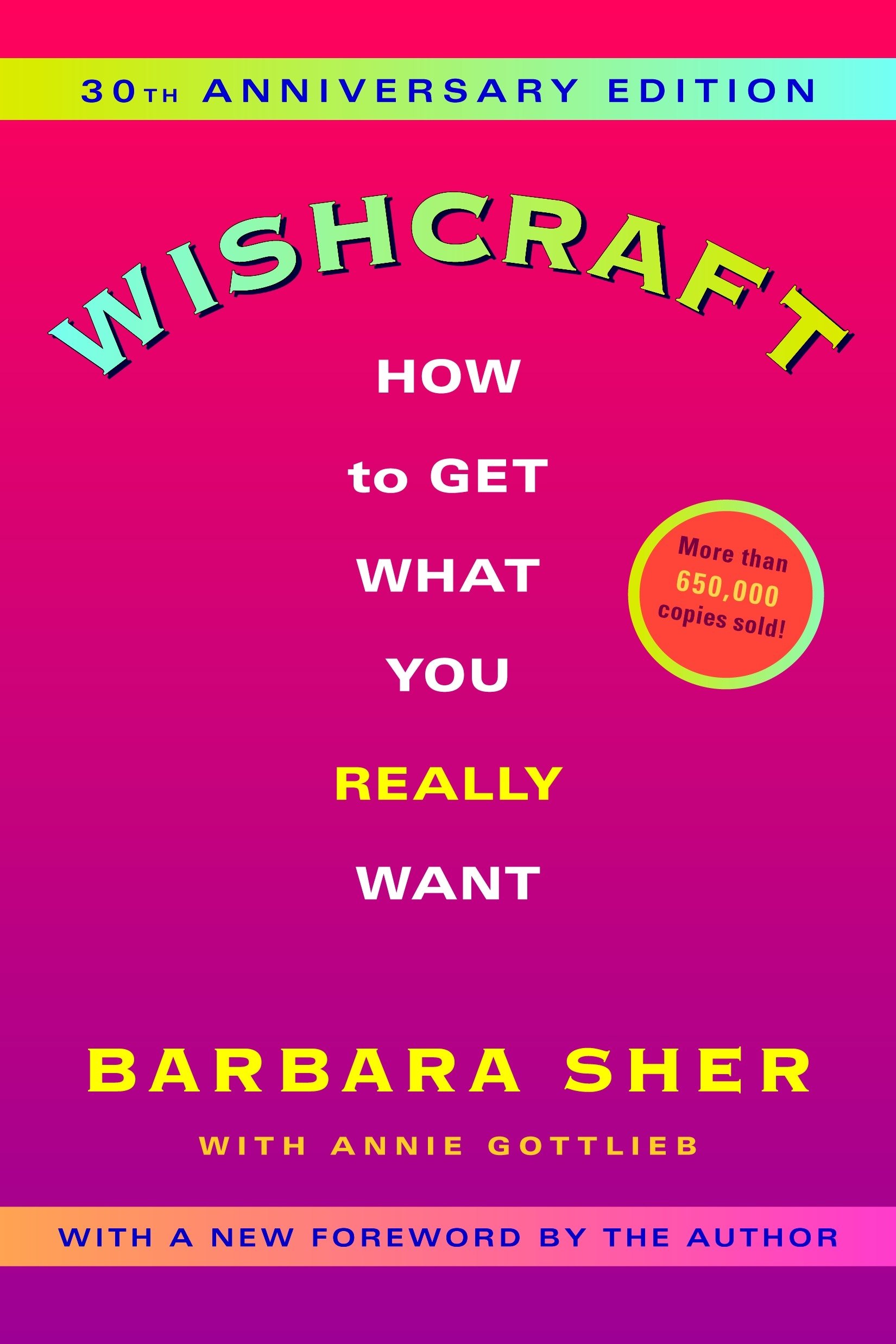
 These were some of the first „motivational“ books I read and they are two of the very few I still like and recommend. Barbara Sher’s approach to goal achievement is very hands-on and down-to-earth as well as inspiring and fun, even funny. For example, her books were based on a workshop called „How to get what you really want, even if you have no goals, no character, and you’re often in a lousy mood“ 😀 That lighthearted attitude shines through all of her writing.
These were some of the first „motivational“ books I read and they are two of the very few I still like and recommend. Barbara Sher’s approach to goal achievement is very hands-on and down-to-earth as well as inspiring and fun, even funny. For example, her books were based on a workshop called „How to get what you really want, even if you have no goals, no character, and you’re often in a lousy mood“ 😀 That lighthearted attitude shines through all of her writing.
These books are worthwhile reading for anyone interested in improving their quality of life, especially if you are sick of the old „go for it!“ and „think positive“ narratives of the self-help world. Which brings us right to my next recommendation…
Rethinking Positive Thinking
by Gabriele Oettingen
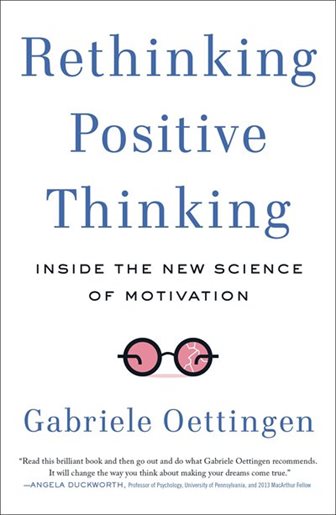 Applied psychology at its best. Gabriele Oettingen and her team have done some excellent research on the „positive thinking“ espoused by many self-help gurus – with paradoxical results. Their research has led me to a much more nuanced understanding of „positive“ and „negative“ thinking and how they actually need to be combined for optimal results.
Applied psychology at its best. Gabriele Oettingen and her team have done some excellent research on the „positive thinking“ espoused by many self-help gurus – with paradoxical results. Their research has led me to a much more nuanced understanding of „positive“ and „negative“ thinking and how they actually need to be combined for optimal results.
I refer to their model almost every time I speak about goal achievement. I thoroughly recommend it to anyone who’d rather follow sound science than well-meaning motivational blahblah.
The Desire Map
by Danielle LaPorte
 This is a thoughtful, beautifully designed workbook for creating „goals with soul“, as the author calls them. Her basic idea is that we don’t yearn for our goals for their own sake, but rather for the way they make us feel. Consequently, she argues, it makes sense to first get clarity about how we want to feel (e.g. powerful, lighthearted, at peace) and then identify goals that will most likely support or create those feelings.
This is a thoughtful, beautifully designed workbook for creating „goals with soul“, as the author calls them. Her basic idea is that we don’t yearn for our goals for their own sake, but rather for the way they make us feel. Consequently, she argues, it makes sense to first get clarity about how we want to feel (e.g. powerful, lighthearted, at peace) and then identify goals that will most likely support or create those feelings.
I recommend this book particularly to people who don’t have clear goals yet and are looking to create a holistic life vision, as well as people for whom conventional goal setting methods simply haven’t worked so far.
CREATIVITY
The Artist’s Way
by Julia Cameron
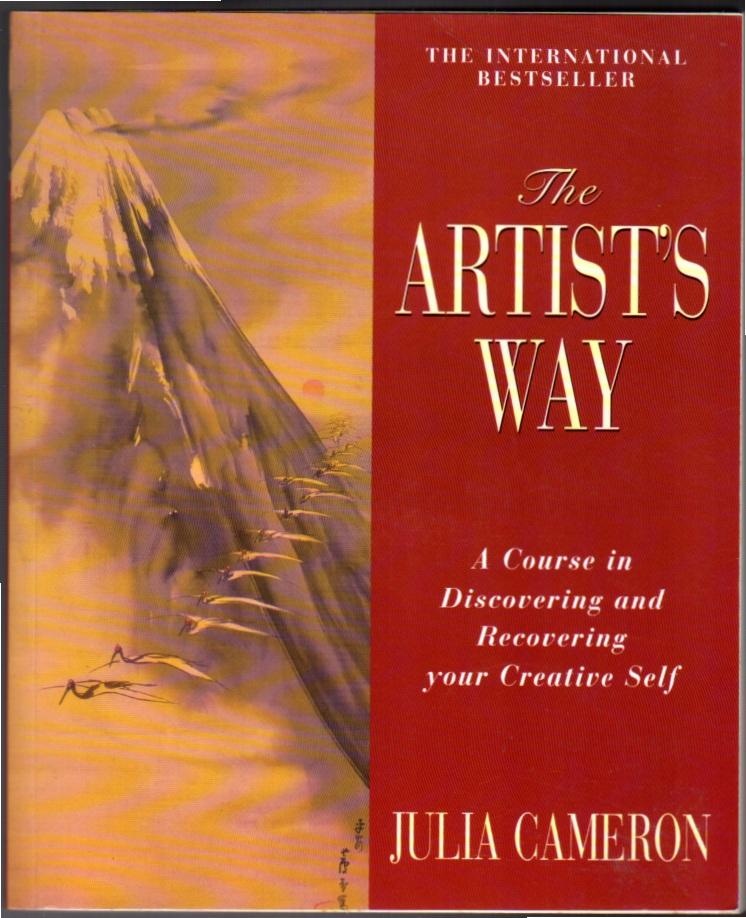 This book is a 12-week journey towards liberating your inner artist. Whether you want to change careers or simply sprinkle a bit of art into your weekends, whether you want to write poetry or sculpt marble or express yourself through programming, whether you have dabbled for years or are starting completely from scratch – if you want more creative flow in your life, I highly recommend you read this book and try the practices it suggests.
This book is a 12-week journey towards liberating your inner artist. Whether you want to change careers or simply sprinkle a bit of art into your weekends, whether you want to write poetry or sculpt marble or express yourself through programming, whether you have dabbled for years or are starting completely from scratch – if you want more creative flow in your life, I highly recommend you read this book and try the practices it suggests.
COMMUNICATION & SOCIAL SKILLS
Non-Violent Communication
by Marshall B. Rosenberg
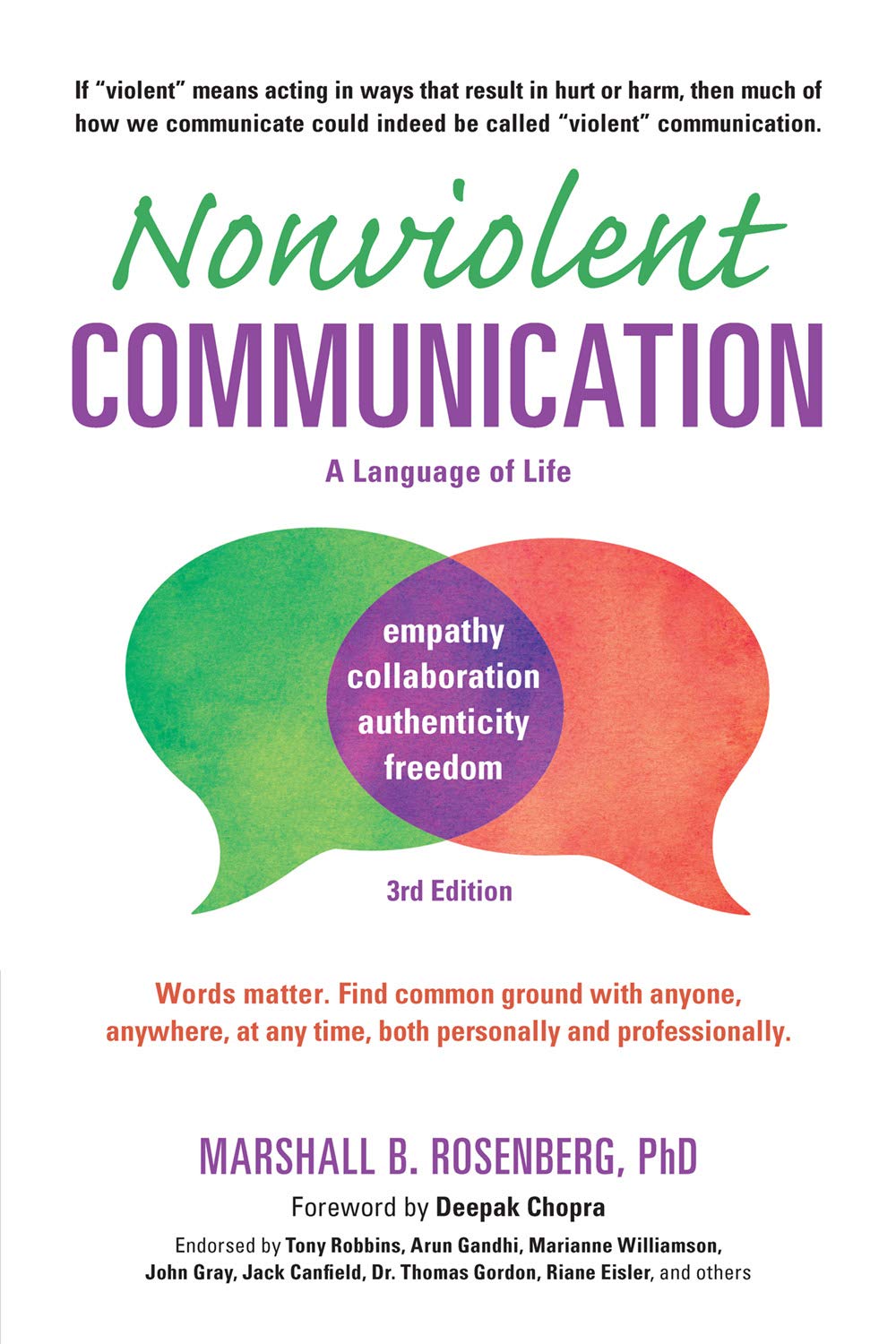 The classic on skillful communication – for good reason. To me, the most valuable part of NVC is making a clear distinction between actual perceptions (what happened), emotions (how I feel about it), needs (why that’s important to me) and requests (what I want from you). In most everyday conversations, these four aspects are jumbled together, which leads to mixed messages, unproductive blame-defensiveness-cycles and general miscommunication and misery. NVC offers a practical, step-by-step way out of those murky waters, towards clarity and connectedness.
The classic on skillful communication – for good reason. To me, the most valuable part of NVC is making a clear distinction between actual perceptions (what happened), emotions (how I feel about it), needs (why that’s important to me) and requests (what I want from you). In most everyday conversations, these four aspects are jumbled together, which leads to mixed messages, unproductive blame-defensiveness-cycles and general miscommunication and misery. NVC offers a practical, step-by-step way out of those murky waters, towards clarity and connectedness.
Disclaimer: I recommend the book and the techniques it describes wholeheartedly but don’t endorse the NVC community as whole, as I have had mixed experiences with dedicated NVC practitioners – some use the technique the way it’s intended, to take full responsibility for oneself and enable mature, healthy interactions, but some use it in ways that feel manipulative to me. If you have had weird encounters with anyone proclaiming to practice NVC, trust your gut regarding that person but please don’t discard NVC as a technique.
NETWORKING
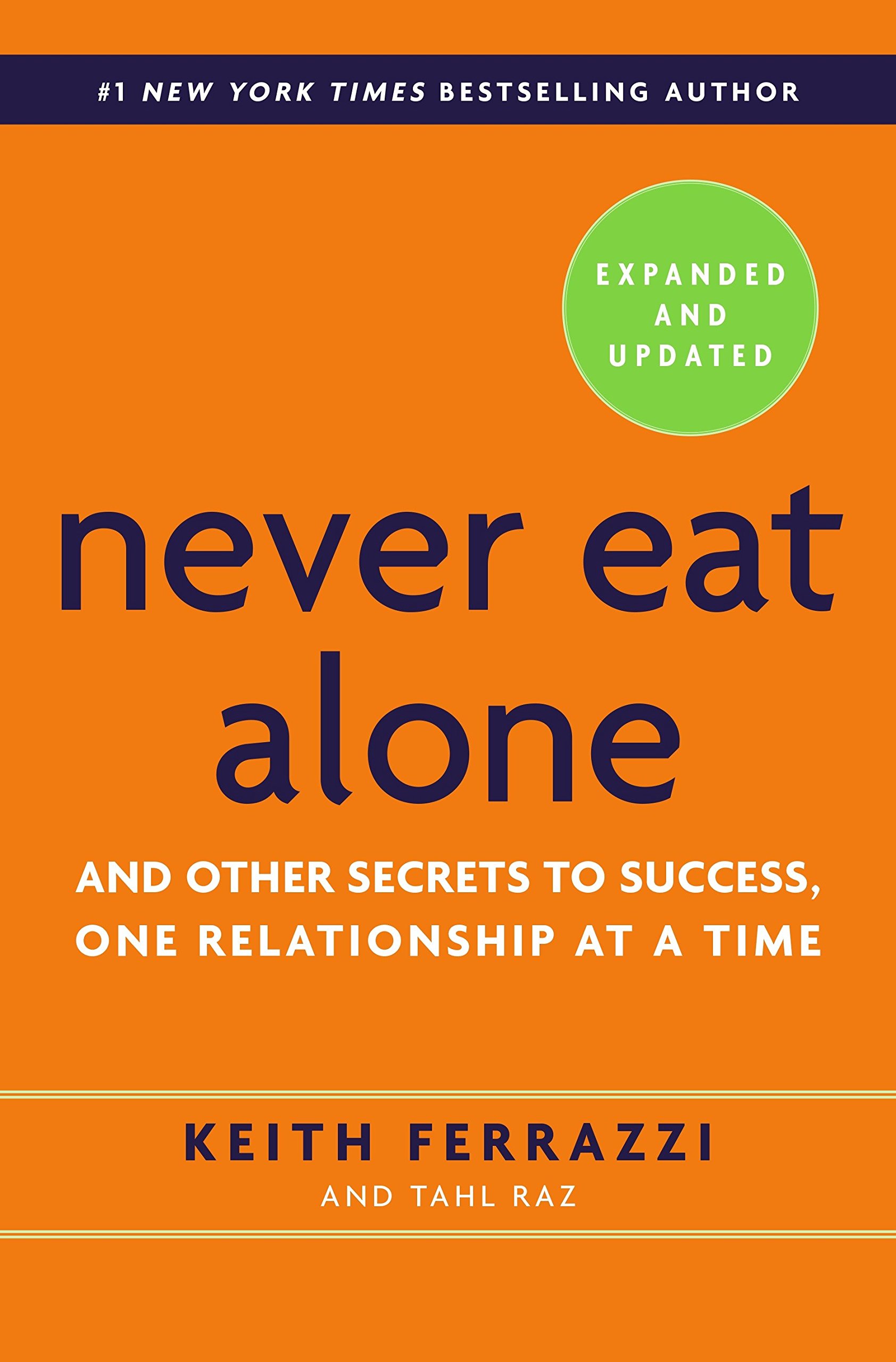 Never Eat Alone
Never Eat Alone
by Keith Ferrazzi
I truly believe that networking is crucial for professional success in pretty much any field. I also believe that networking doesn’t have to be icky or sleazy – ideally, it’s about building and nurturing mutually beneficial relationships that are based on authenticity, generosity and shared interests. Keith Ferrazzi’s book provides excellent instructions on how (and why) to do just that, plus it’s easy and fun to read and very motivating.
BOUNDARIES
Boundaries – Where You End and I Begin
& Where to Draw the Line
by Anne Katherine
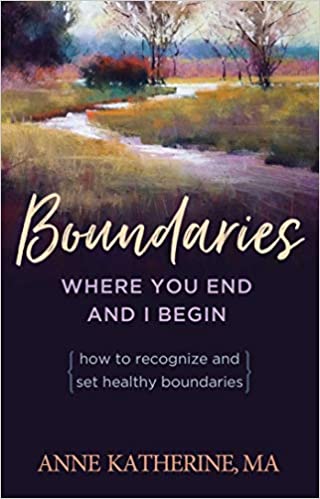
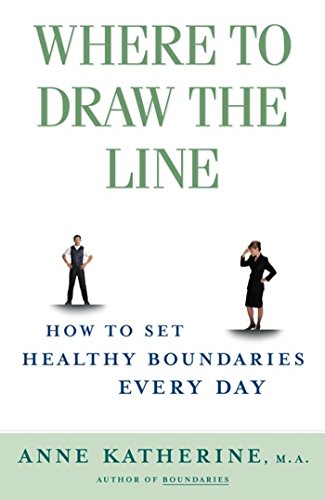 These are by far the best books on personal boundaries that I know of.
These are by far the best books on personal boundaries that I know of.
The first one gives a general explanation of what boundaries are, how their development is connected to early attachment experiences, how to recognize boundary violations and, most importantly, how to (re-)build strong and flexible boundaries.
The second book looks at specific examples of boundaries in various contexts (e.g. friendship, parenting, sexuality, spirituality, food) to make it easier to recognize our boundaries and prevent or heal boundary violations.
Both books are based on sound psychology but written in very accessible language. Both are filled with lots of examples: personal experiences of the author’s clients as well as actual conversations around boundaries. Sometimes the same dialogue is written in two versions, one with healthy boundaries, one without. These examples provide an excellent illustration of the theory behind personal boundaries and make it intuitively comprehensible.
The only thing I regret about these books is that I didn’t read them much earlier. When I finally did, I had one epiphany after another. Highly recommended!
SELF-ESTEEM ISSUES
Self-Evaluation and Psychotherapy in the Market System
by Kalman Glantz & J. Gary Bernhard
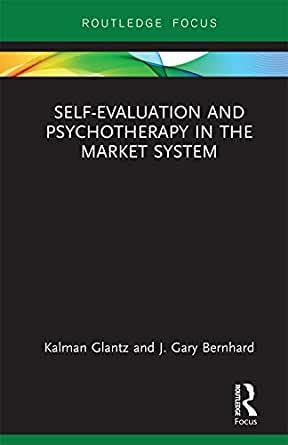 I admit, neither the title nor the cover of this book are particularly sexy. But you know how the saying goes, don’t judge…
I admit, neither the title nor the cover of this book are particularly sexy. But you know how the saying goes, don’t judge…
I came across this book in this Guardian article about what they call „inequality therapy“. There’s a good chance that if you like the article, you’ll like the book. I found it quite revolutionary, to be honest. For decades, the mainstream take on self-evaluation (in terms of self-esteem) has been that (a) you need it and (b) you need it to be as positive as possible. It seems so obvious, especially in our modern culture riddled with unrealistic expectations and resulting low self-esteem: Self-esteem is important! You should think highly of yourself! You deserve it!
Glantz and Bernhard do two interesting things: First, they place the strive towards self-esteem in the context of capitalist culture and the market system – explaining a psychological phenomenon at least partially through a social, economical, political as well as evolutionary lens. Second, they pose an intriguing question: „Why do you have an opinion (about yourself)?“, basically questioning the concept of self-esteem as such. They argue (quite convincingly IMHO) that our opinion about ourselves is just that – an opinion. Neither right nor wrong, and definitely not necessary for successfully navigating through life.
Reading this book had quite a profound effect on me. I suddenly didn’t take my own self-evaluations that seriously any more. They were still there, but their impact on my wellbeing (through self-doubt and anxiety) lessened significantly. I can’t promise you’ll experience the same, but it might be worth trying 🙂
A note: the book is written primarily for therapists and therefore contains lots of vignettes from therapeutic conversations, but I think the format is just as useful for interested laypeople and self-help readers.
Embracing your Inner Critic
by Hal Stone & Sidra Stone
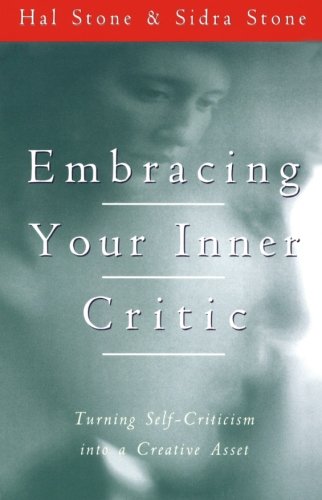 Full disclosure: I haven’t read this book in its entirety. I read sections from it during a time when my own inner critic was acting up massively and really interfering with my peace of mind. The book (especially chapters 16 & 17) reminded me that the inner critic is not an enemy but rather performs an important role within the „psychological ecosystem“. Usually, that role is one of protection. When we take the inner critic and their needs seriously and try to satisfy those needs in healthy ways, they usually become much calmer and friendlier.
Full disclosure: I haven’t read this book in its entirety. I read sections from it during a time when my own inner critic was acting up massively and really interfering with my peace of mind. The book (especially chapters 16 & 17) reminded me that the inner critic is not an enemy but rather performs an important role within the „psychological ecosystem“. Usually, that role is one of protection. When we take the inner critic and their needs seriously and try to satisfy those needs in healthy ways, they usually become much calmer and friendlier.
Reading the excerpts and following some exercises from this book allowed me to immediately lessen the intensity of my self-criticism, channel it in more productive directions and indeed regain some peace of mind.
TRAUMA
Trauma & Recovery
by Judit Herman
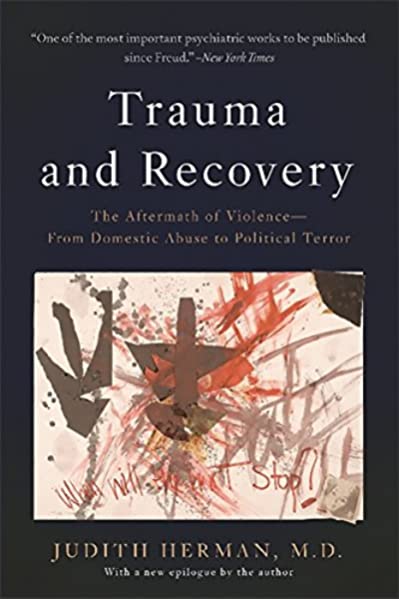 The classic on complex PTSD (resulting not from a single traumatic incident but repeated emotional traumatization over a longer period of time). What I like most about this book is that it’s not just psychological – it takes a broader social, political and historical perspective and shows how systemic injustice makes trauma happen. For example, the history of trauma research and therapy is described along the three historical lines of (a) child abuse and incest in the Viennese upper class during Freud’s time, (b) PTSD in war veterans during the world wars as well as the Vietnam war and (c) the feminist movement of the later 20th century and the widespread issue of domestic violence and rape culture.
The classic on complex PTSD (resulting not from a single traumatic incident but repeated emotional traumatization over a longer period of time). What I like most about this book is that it’s not just psychological – it takes a broader social, political and historical perspective and shows how systemic injustice makes trauma happen. For example, the history of trauma research and therapy is described along the three historical lines of (a) child abuse and incest in the Viennese upper class during Freud’s time, (b) PTSD in war veterans during the world wars as well as the Vietnam war and (c) the feminist movement of the later 20th century and the widespread issue of domestic violence and rape culture.
I remember feeling shocked and somewhat angry several times while reading this book – in a good, eye-opening and empowering kind of way.
Polyvagal Theory in Therapy
by Deb Dana
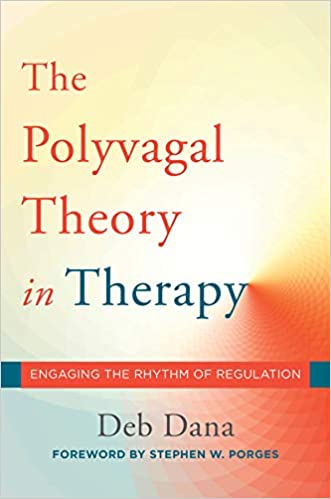 Officially, this is a book about trauma and about therapy, but to me, it’s about much more. Polyvagal theory is about how our experience of felt safety is the prerequisite for health and wellbeing and how this works on the level of the nervous system. Therefore, I believe it can be helpful to pretty much everyone who is actively pursuing better health and wellbeing, whether that’s a trauma patient or simply a stressed-out coaching client.
Officially, this is a book about trauma and about therapy, but to me, it’s about much more. Polyvagal theory is about how our experience of felt safety is the prerequisite for health and wellbeing and how this works on the level of the nervous system. Therefore, I believe it can be helpful to pretty much everyone who is actively pursuing better health and wellbeing, whether that’s a trauma patient or simply a stressed-out coaching client.
Deb Dana’s book offers the most comprehensible and practical explanation of polyvagal theory and its application that I have read so far (except for my own article on polyvagal theory, of course :-D), including various exercises and worksheets.
The Body Keeps the Score
by Bessel van der Kolk
 Another classic on trauma, arguably the most comprehensive on this list. It includes both the historical perspective of Judit Herman’s Trauma and Recovery (in a much shorter version of course) and the body-based insights of polyvagal theory. It explains the mechanisms of trauma in a detailed but accessible way. Additionally, it provides a great overview of classic and modern therapeutic approaches to trauma.
Another classic on trauma, arguably the most comprehensive on this list. It includes both the historical perspective of Judit Herman’s Trauma and Recovery (in a much shorter version of course) and the body-based insights of polyvagal theory. It explains the mechanisms of trauma in a detailed but accessible way. Additionally, it provides a great overview of classic and modern therapeutic approaches to trauma.
I listened to this as an audiobook and really enjoyed that. I may have found it a little lengthy to read (445 p.) but listening was perfect. If you want a general introduction into trauma research and treatment, this is an excellent place to start!
CHRONIC ILLNESS
How to be Sick &
How to Live Well with Chronic Pain and Sickness
by Toni Bernhard

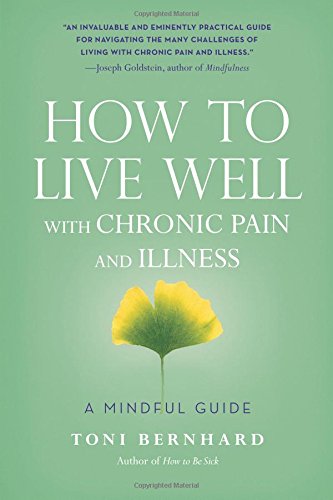 Chronic illness is associated not only with the primary symptoms of the illness itself, but also with the psychological suffering that comes with it – anger at one’s condition, helplessness, loneliness and grief about the quality of life that has been lost, just to name a few. Toni Bernhard describes her own experience of living with debilitating chronic illness and, drawing from years of Buddhist practice, provides a hopeful perspective on how to lessen the mental/emotional burden of it by cultivating acceptance and self-compassion.
Chronic illness is associated not only with the primary symptoms of the illness itself, but also with the psychological suffering that comes with it – anger at one’s condition, helplessness, loneliness and grief about the quality of life that has been lost, just to name a few. Toni Bernhard describes her own experience of living with debilitating chronic illness and, drawing from years of Buddhist practice, provides a hopeful perspective on how to lessen the mental/emotional burden of it by cultivating acceptance and self-compassion.
I work closely with patients who have chronic illnesses and I believe that the ideas from these two books would benefit most of them as well as their caregivers and loved ones.
SPIRITUALITY
Tao Te Ching
Version by Stephen Mitchell (originally by Lao-Tsu)
 Nowadays, quotes by Lao-Tsu can be found on everything from cheesy motivational posters to boring coffee mugs. It’s worth reading the whole thing though – I promise there’s way more to it than „each journey begins with one step“.
Nowadays, quotes by Lao-Tsu can be found on everything from cheesy motivational posters to boring coffee mugs. It’s worth reading the whole thing though – I promise there’s way more to it than „each journey begins with one step“.
To me, the paradoxical format and the metaphoric language is the closest any piece of writing has ever come to expressing the deepest truths of our existence. Big words, I know, but it touches a part of me that goes far beyond words and logic, yet feels extremely real.
I love that Stephen Mitchell didn’t write an exact translation but rather a modern version that makes it much more accessible without losing its timeless quality. For example, a detail I really appreciate is that he uses gender-inclusive language, regularly switching between feminine and masculine pronouns.
The Power of Now
by Eckhart Tolle
 One of the most successful spiritual books of all times – and for good reason, IMHO. To me, both the words and what’s found „between the lines“ point to fundamental truths about life. I enjoy the meditative, peaceful feeling I inevitably sink into while reading Eckhart Tolle’s books, particularly this one.
One of the most successful spiritual books of all times – and for good reason, IMHO. To me, both the words and what’s found „between the lines“ point to fundamental truths about life. I enjoy the meditative, peaceful feeling I inevitably sink into while reading Eckhart Tolle’s books, particularly this one.
It does contain some „woo-woo“, so if you’re not into that at all, you might not like the book. However, the woo-woo is very undogmatic, there’s no need to „believe“ anything. It’s simply an invitation to the here and now and the peace that can be found there.
When Things Fall Apart
by Pema Chödrön
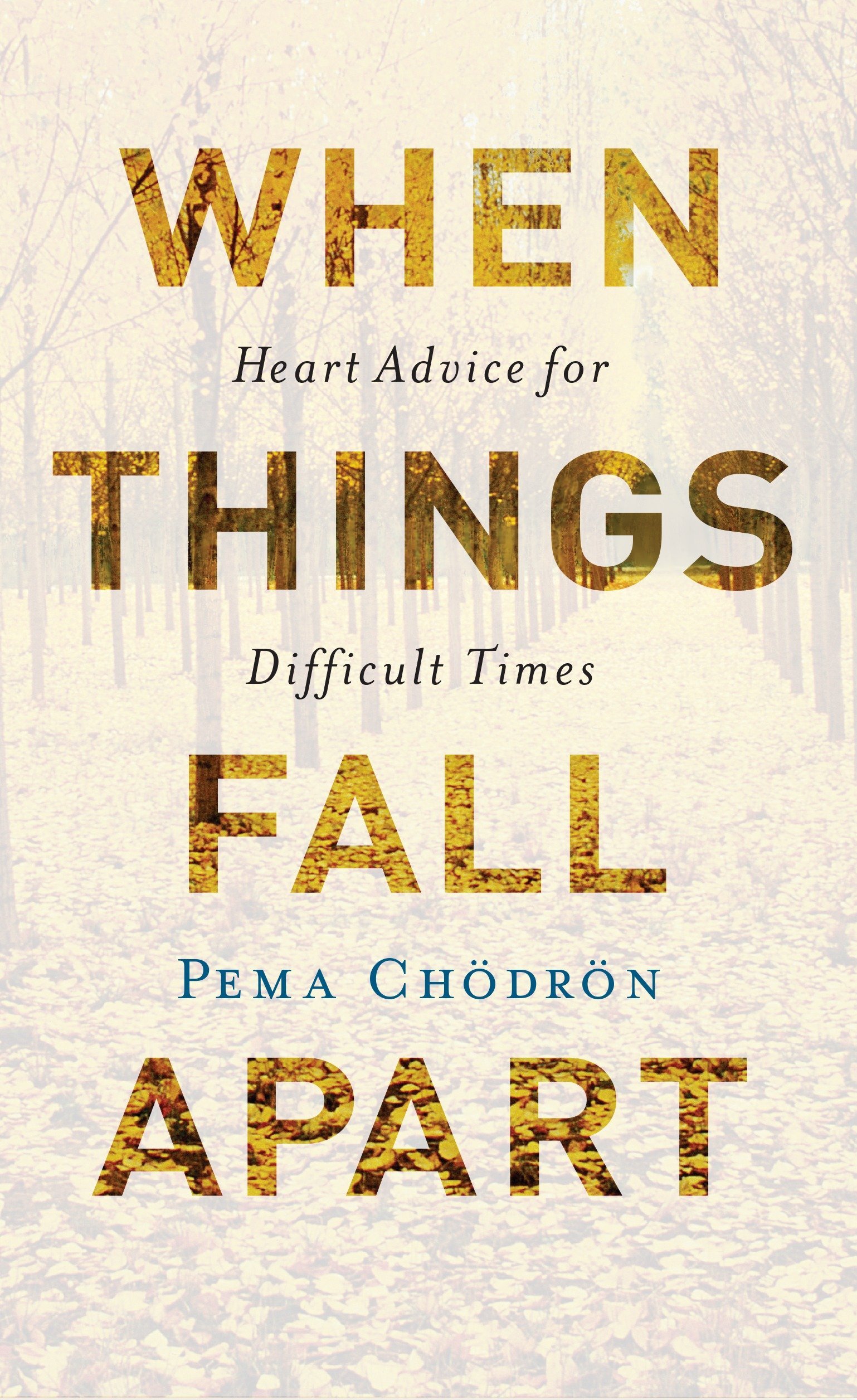 I have found that in times of acute crisis and despair, I turn to spirituality rather than psychology, because I need a bigger perspective on the Why behind the hardship. Pema Chödrön’s books (and particularly this one) are a beautiful source of no-bullshit solace, particularly when nothing else seems to help. In a down-to-earth, compassionate and sometimes shockingly direct way her words convey the great wisdom found in Buddhist teachings about suffering and its potential for deeper awakening.
I have found that in times of acute crisis and despair, I turn to spirituality rather than psychology, because I need a bigger perspective on the Why behind the hardship. Pema Chödrön’s books (and particularly this one) are a beautiful source of no-bullshit solace, particularly when nothing else seems to help. In a down-to-earth, compassionate and sometimes shockingly direct way her words convey the great wisdom found in Buddhist teachings about suffering and its potential for deeper awakening.
If you are experiencing grief, depression or any other form of existential pain, this book may help you find a way through it.
